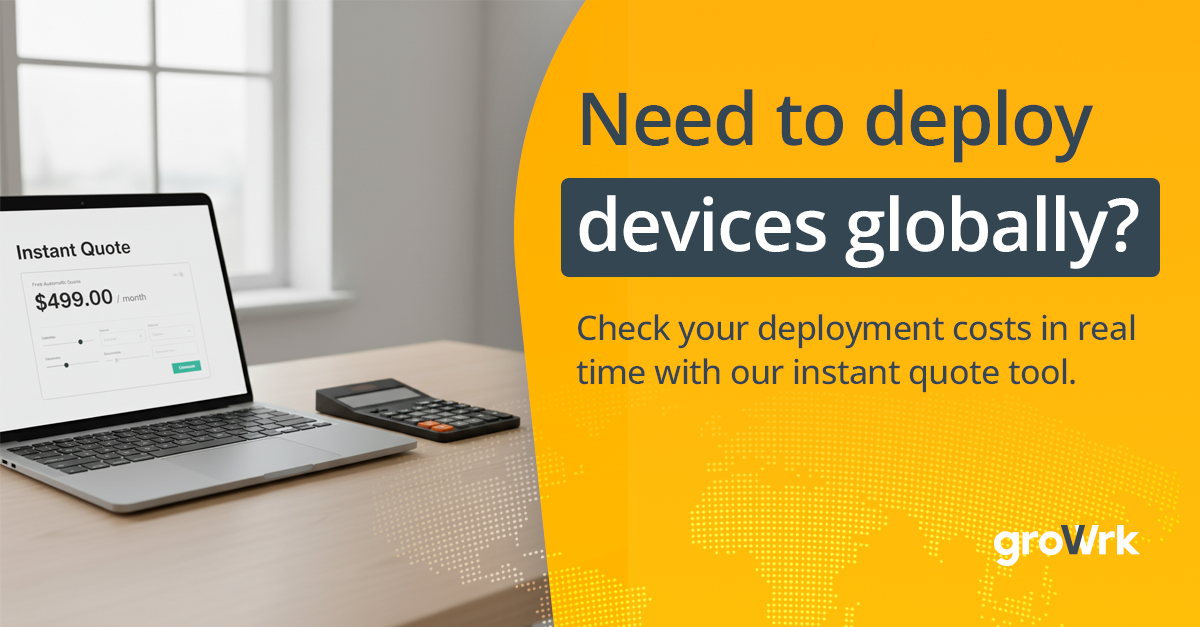How to send IT equipment to Singapore
Looking to send laptops or other IT equipment to distributed teams in Singapore? GroWrk simplifies IT asset management, shipping, and compliance across borders. Learn how to seamlessly manage logistics, customs, and IT outsourcing for your remote team.
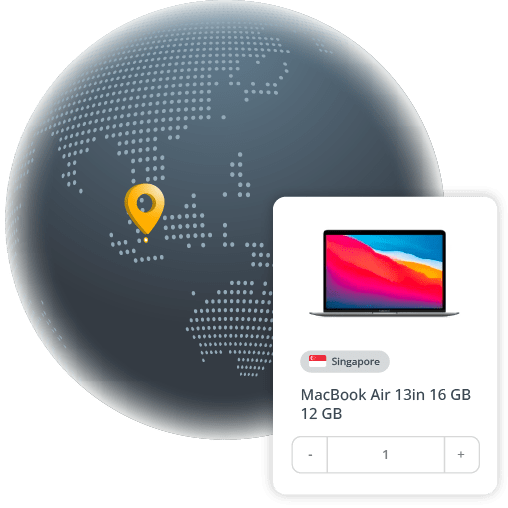
At a glance
Singapore has solidified its position as a premier global IT hub, distinguished by its advanced infrastructure, strategic investments, and forward-thinking policies. The nation's commitment to digital transformation has fostered a dynamic environment conducive to technological innovation and enterprise growth.
|
CURRENCY Singapore Dollar (SGD) |
OFFICIAL LANGUAGE English, Malay, Mandarin, Tamil |
TIME ZONE Singapore Standard Time (SGT), GMT +08:00 |
|
CUSTOMS DUTY ON ELECTRONICS Typically 0% for most electronic goods; Goods and Services Tax (GST) of 8% applies. |
SHIPPING LEAD TIME 3-7 days For standard shipping |
IT OUTSOURCING MARKET Singapore's IT services market is projected to grow at a compound annual growth rate (CAGR) of 10.8% from 2025 to 2031. |
Overview of IT operations in Singapore

Driving digital innovation: Singapore has cultivated a robust environment for digital innovation through its Smart Nation initiative and strategic focus on areas such as fintech, artificial intelligence, digital trade, and automation. Government agencies and private sector players collaborate closely to accelerate the adoption of emerging technologies, fostering an agile, forward-looking economy that supports business growth across sectors.
Advanced IT infrastructure: Singapore’s world-class digital infrastructure includes high-speed broadband coverage, next-generation 5G connectivity, and a thriving network of data centres that serve as regional hubs for cloud computing and digital services. The city-state’s strategic investments in secure, scalable infrastructure continue to attract multinational enterprises and technology leaders seeking to establish a foothold in Asia.
Commitment to sustainability: Sustainability is a central tenet of Singapore’s digital strategy. With a national push toward green data centres, energy-efficient IT practices, and carbon-conscious innovation, the government and private sector are aligning to support environmentally responsible growth. This sustainability focus complements global ESG goals, making Singapore an ideal base for companies balancing innovation with environmental stewardship.
Skilled and future-ready workforce: Singapore’s workforce is globally recognised for its technical competence, adaptability, and digital fluency. Through initiatives such as SkillsFuture and sector-specific training programs, the nation continues to invest in upskilling its talent pool in areas like cybersecurity, software development, cloud engineering, and artificial intelligence. This ensures a steady pipeline of high-calibre professionals equipped to meet the evolving demands of the digital economy.
Pro-business environment: Singapore offers a transparent, stable, and pro-business environment supported by competitive tax structures, strong intellectual property protection, and digital trade-friendly regulations. The ease of doing business, combined with strategic access to Southeast Asian and global markets, positions Singapore as a premier hub for companies seeking growth, innovation, and regional integration.
Robust cybersecurity and data governance: Cybersecurity is a national priority in Singapore, with comprehensive legislation, such as the Cybersecurity Act and the Personal Data Protection Act (PDPA), ensuring strong safeguards for digital infrastructure and consumer data. These legal frameworks provide a secure and trusted environment for businesses operating in high-value digital domains.
A global tech and innovation hub: From its vibrant innovation districts, such as One-North, to leading research institutions and accelerators, Singapore has cultivated a thriving ecosystem for startups, tech enterprises, and R&D-driven companies. With continued support from government agencies and access to a broad investor base, Singapore remains a magnet for innovation and digital leadership across the Asia-Pacific region.
Shipping IT equipment to Singapore: What you need to know
| Customs regulations |
Regulatory authority: The Singapore Customs, under the Ministry of Finance, oversees the importation process, ensuring adherence to the Customs Act and the Goods and Services Tax (GST) Act. Customs permit: A customs permit is required for all imports. This permit covers the import and tax payment for the goods. Documentation: Accurate and complete documentation is vital. This includes commercial invoices, packing lists, and any relevant certificates. |
| Duties and taxes |
Customs duties: Singapore maintains a highly liberal trade regime, and most IT equipment, such as laptops, desktops, servers, and peripheral devices, is not subject to customs duties. The country applies a Most-Favoured-Nation (MFN) zero-duty rate on nearly all tariff lines, particularly for technology-related goods. Harmonized System (HS) codes: Each product must be accurately classified under the Harmonized System (HS) code, which determines its tariff treatment and compliance requirements. While most standard IT equipment is duty-free, proper classification remains critical for customs declaration and statistical reporting. Misclassification may result in processing delays or administrative penalties. Goods and Services Tax (GST): As of 1 January 2025, Singapore maintains a Goods and Services Tax (GST) rate of 9% on all imported goods, including IT equipment such as laptops, desktops, servers, and peripheral devices. This tax is levied on the Cost, Insurance, and Freight (CIF) value of the goods, which encompasses the product cost, shipping, insurance charges, and any applicable dutiable charges. GST must be paid at the time of importation and is a mandatory requirement for customs clearance. GST exemptions: While most IT products are taxable, certain categories, such as goods for diplomatic missions or those classified under specific government schemes, may be eligible for GST relief or exemption. Additionally, businesses that are GST-registered may claim input tax credits on eligible imports, subject to the Inland Revenue Authority of Singapore (IRAS) guidelines. |
| Required documentation |
|
| Import restrictions |
|
| New vs. Used equipment |
|
| Customs clearance process |
|
| Penalties or fines for non-compliance |
|
Checklist for sending laptops to Singapore
When shipping laptops to Singapore, it’s important to follow a few best practices to ensure the process goes smoothly, and your equipment arrives safely and on time. Here are some helpful shipping tips:
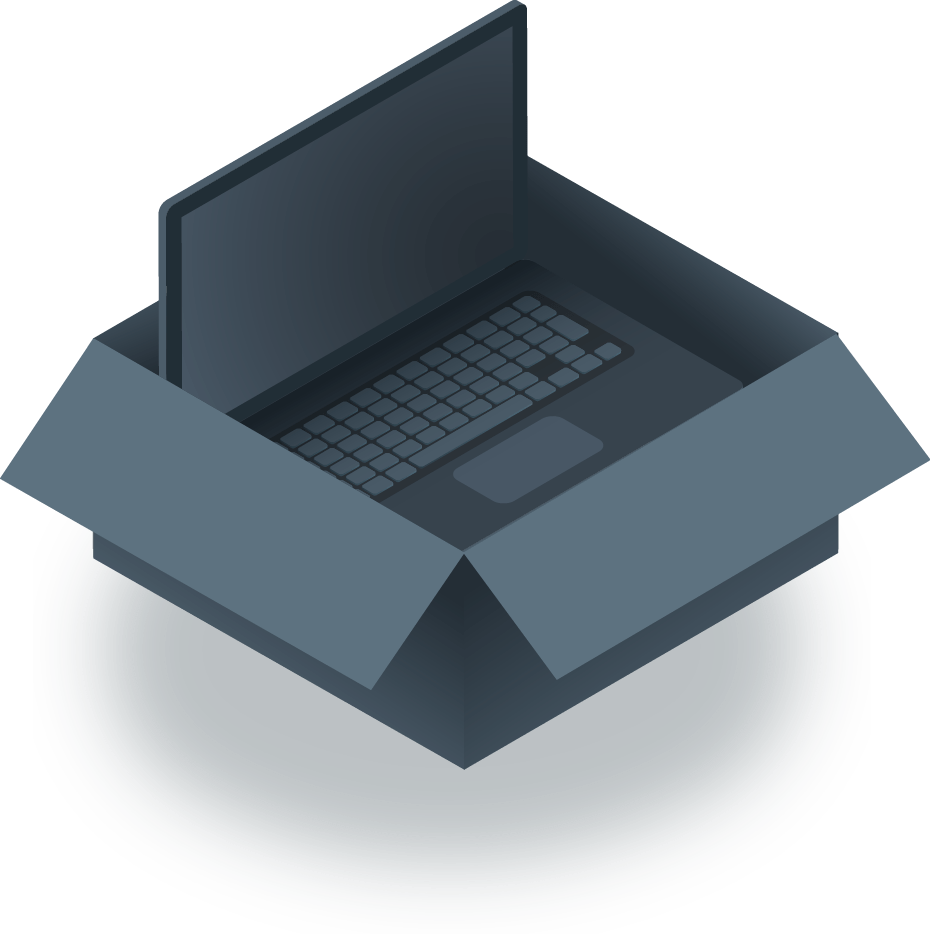
Select trusted couriers: Choose reliable couriers such as GroWrk, DHL, UPS, FedEx, or SingPost (Singapore Post) for international shipments. These providers offer real-time tracking and are experienced with Singapore’s streamlined customs system.
Check service levels: Select the appropriate shipping option based on urgency. Express shipping (1-3 days) for high-priority deliveries. Standard shipping (4-7 days) for cost-effective options.
Use high-quality packaging: Secure laptops with sturdy, padded boxes and protective materials like bubble wrap, foam inserts, or air cushions to prevent damage during transit.
Disassemble where possible: If shipping accessories like chargers, docking stations, or monitors, package them separately to prevent damage. Remove detachable components if applicable.
Label clearly: Ensure the recipient’s name, address, and contact details are correctly labeled. Mark the package as "fragile" to encourage careful handling.
Accurate product descriptions: On the commercial invoice, provide a detailed and accurate description of the laptop, including its brand, model, and serial number. Inaccurate descriptions may cause customs delays.
Value declaration: Declare the correct value of the laptop to avoid under- or over-declaring, which could lead to customs inspections or fines. The declared value determines any applicable duties and taxes.
Customs declarations: All international shipments require customs clearance. Include: Customs Import Permit (if value exceeds SGD $400)), commercial invoice, packing list, and Importer's UEN (Unique Entity Number) if shipping to a business.
Proof of origin: Include a certificate if the shipment qualifies for preferential duty rates under Singapore’s Free Trade Agreements (FTAs).
Understand import duties & taxes: Laptops are duty-free, but shipments valued above SGD $400 are subject to 8% GST (Goods and Services Tax) based on the CIF value (Cost + Insurance + Freight).
Pre-pay duties and taxes: Some couriers allow for pre-paid duties and taxes to simplify customs clearance and prevent the recipient from facing unexpected charges upon arrival.
Protect against loss or damage: Consider purchasing shipping insurance for high-value laptops to protect against loss, theft, or damage during transit.
Compliance with Singaporean regulations: Ensure laptops comply with Infocomm Media Development Authority (IMDA) regulations, especially if they include Wi-Fi or Bluetooth modules. Devices for commercial use may require equipment registration.
Use tracking tools: Major couriers provide real-time tracking—monitor shipments closely to anticipate customs clearance updates and delivery progress.
Stay in touch with the recipient: Notify the recipient about the expected delivery timeline, tracking updates, and any customs-related requirements to avoid delays.
Expect weather and seasonal delays: Singapore has a robust logistics infrastructure, but minor delays can occur during monsoon seasons or peak shopping holidays like Chinese New Year and Singles’ Day.
Singaporean domestic delivery options: For final delivery, consider SingPost, Ninja Van, J&T Express, or Lalamove for efficient and reliable local delivery within Singapore.
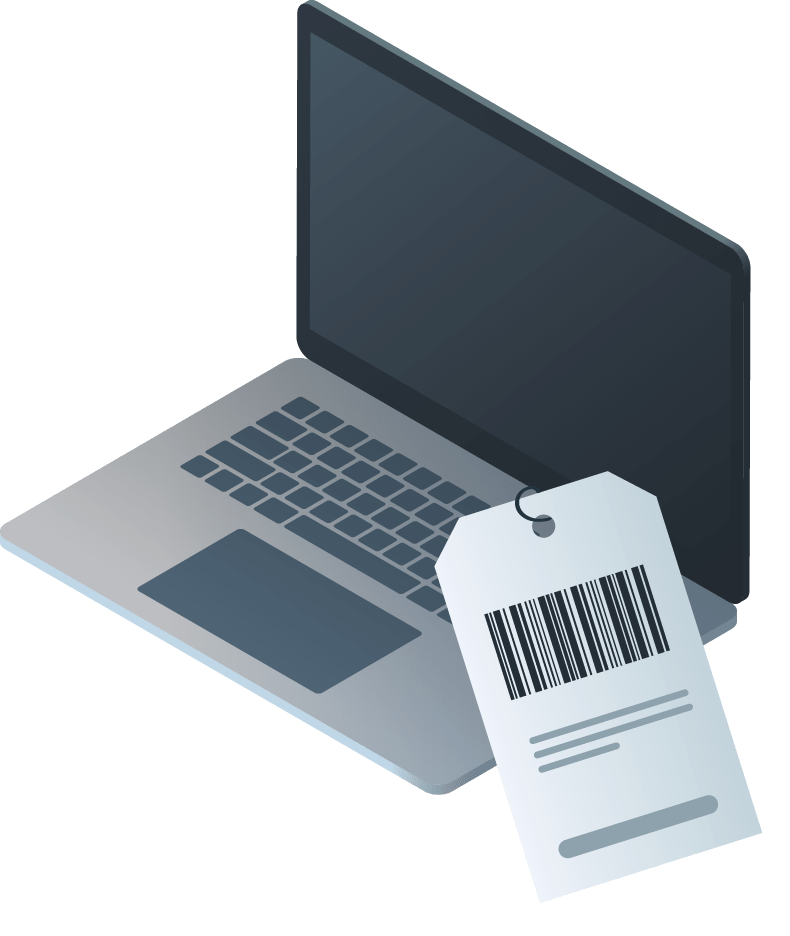
Average cost of IT Equipment in Singapore
Laptops (Business Grade):
- Mid-range: $740 – $1,480 USD
- High-end: $1,480 – $4,440+ USD
High-end models such as Apple MacBook Pro, Dell XPS, and Lenovo ThinkPad are priced on the higher end.
Monitors (Business Grade):
- Standard: $220 – $590 USD
- Ultrawide/4K: $665 – $1,480+ USD
Monitors from trusted brands like Dell, Samsung, and LG typically range within these prices, with 4K or ultrawide models costing more.
Desktops (Business Grade):
- Standard Desktop PC: $590 – $2,220 USD
- Workstation Desktop (for high-performance tasks): $2,220 – $7,400+ USD
Prices depend on the brand and specifications, with options from HP, Lenovo, and Apple among the most common.
Printers (Laser):
- Standard Office Printers: $150 – $520 USD
- High-Volume Printers: $740 – $3,330+ USD
Leading brands such as HP, Canon, and Brother offer a wide range of models for office environments.
Public holidays & IT work hours to plan your shipment
-
Key public holidays in Singapore:
- New Year’s Day – January 1
- Chinese New Year – Date varies (usually in January or February)
- Good Friday – Date varies (usually in April)
- Labour Day – May 1
- Hari Raya Puasa – Date varies (usually in May or June)
- National Day – August 9
- Deepavali – Date varies (usually October or November)
- Christmas Day – December 25
Typical work hours for IT professionals
- Standard workweek: IT professionals in Singapore typically adhere to a 40- to 44-hour workweek, spread from Monday to Friday. The standard office hours usually run from 9:00 AM to 6:00 PM, though start and end times may vary slightly across companies. Many IT firms now offer flexible or staggered working hours, allowing employees to align their schedules with operational needs or personal preferences.
- Flexible & remote work options: Post-pandemic, Singapore’s IT sector has widely adopted flexible work arrangements, including remote and hybrid models. These practices are encouraged by government guidelines such as the Tripartite Standard on Flexible Work Arrangements, helping companies retain talent and enhance overall workforce well-being.
- Overtime: Overtime in Singapore is regulated under the Employment Act. For eligible employees (typically those earning below a certain threshold), work beyond the standard hours must be compensated at 1.5 times the hourly basic rate. However, PMETs (Professionals, Managers, Executives, and Technicians)—which includes most IT professionals—are often not covered under the statutory overtime requirements. Instead, their compensation for extra hours is governed by company-specific policies, which may include additional pay or time off in lieu.
- Public holiday work: Singapore observes 11 official public holidays, during which most offices, including those in the IT sector, are closed. However, if employees are required to work on a public holiday, the Employment Act stipulates they must be given either an extra day’s salary or a day off in lieu, depending on the employment agreement. In the IT industry, where project deadlines or 24/7 system support may necessitate holiday work, such arrangements are common and must be fairly compensated.
What to consider when retrieving IT equipment from employees in Singapore
| Local delivery and logistics services |
|
| Inventory management |
|
| Logistics challenges for remote locations |
|
| Equipment agreement with employees |
|
How to dispose of IT equipment in Singapore
E-waste recycling:
- Certified e-waste disposal: To comply with Singapore’s environmental regulations, it is essential to engage NEA-licensed e-waste disposal providers. These certified professionals are trained to dismantle IT equipment, manage hazardous components such as batteries and circuit boards, and ensure all materials are processed by the Resource Sustainability Act and e-waste recycling standards.
- Recycling centres: For smaller IT devices, designated e-waste recycling bins and collection points across Singapore provide a convenient and efficient disposal solution. However, specialist recycling services are required for larger or more complex equipment, such as servers and enterprise-grade storage systems. These providers offer traceable and compliant handling to meet both legal and sustainability commitments.
Data Destruction
- Data wiping: Before disposing of any IT hardware, it is imperative to erase all stored data from devices such as hard drives, SSDs, and mobile phones. Use certified data-erasure software compliant with standards such as DoD 5220.22-M or NIST 800-88 to ensure complete data removal. This step is critical to prevent data leaks and maintain compliance with the Personal Data Protection Act (PDPA).
- Physical destruction: If maximum security is required, physical destruction of data-bearing devices offers absolute assurance. Methods such as shredding, crushing, or degaussing are effective in rendering drives permanently unreadable. This process is recommended for equipment that holds sensitive or confidential information, especially in sectors such as finance, healthcare, or government.
Repurposing or donating
- Donating to charitable organizations: If your IT equipment remains in good working condition, consider donating it to local schools, voluntary welfare organizations (VWOs), or community initiatives in Singapore. Contributing functional devices not only minimizes electronic waste but also supports digital inclusion efforts and benefits under-resourced groups across the country.
- Internal repurposing: For companies undergoing regular IT upgrades, repurposing older equipment internally is a cost-effective and sustainable approach. These devices can be reassigned for administrative functions or to teams with lower performance needs, thereby extending their lifecycle and reducing unnecessary disposal.
Manufacturer Take-Back Programs
Several IT equipment manufacturers in Singapore offer take-back programmes that enable organisations to return end-of-life devices for responsible recycling or reuse. These initiatives promote sustainability and ensure that obsolete equipment is managed in compliance with Singapore’s environmental regulations.
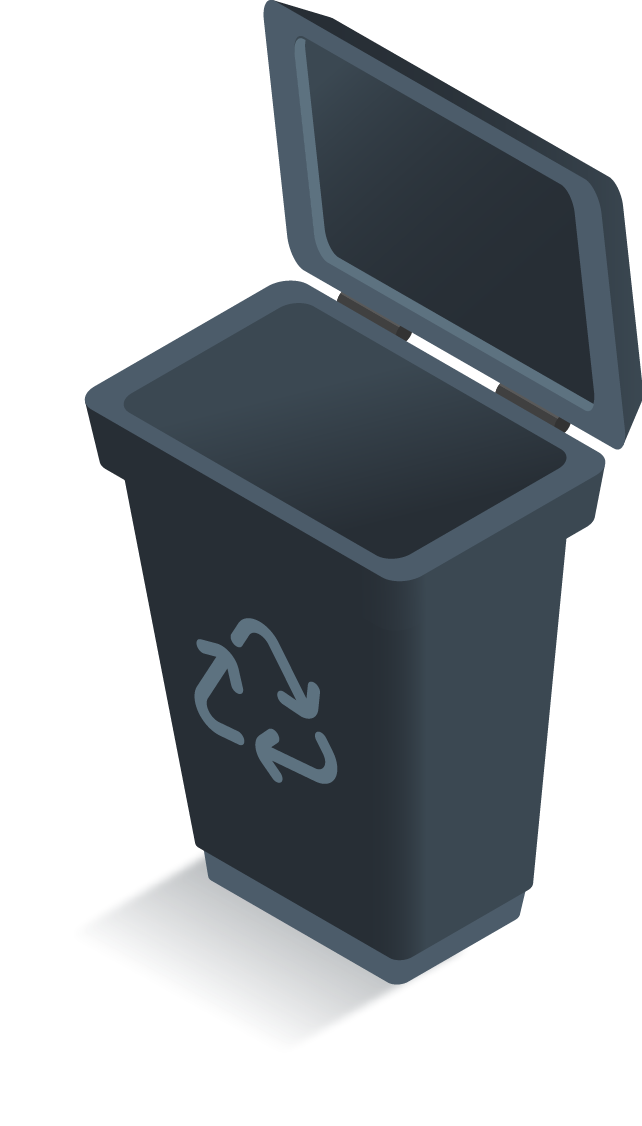
Local IT Outsourcing Solutions in Singapore
You can streamline your IT logistics and asset management with GroWrk’s comprehensive global solution. Whether it’s shipping equipment or managing IT assets across multiple regions, GroWrk helps you stay compliant and efficient, every step of the way. Here’s why GroWrk is the ideal partner for managing your IT assets in Singapore:

| 1. Wide global coverage |
GroWrk provides global IT outsourcing experience combined with a deep understanding of the Singaporean market. Our approach ensures your operations comply with local regulations and industry best practices, addressing both technical and legal requirements for seamless business operations. |
| 2. End-to-end asset management |
We oversee the full IT asset lifecycle—from procurement to disposal. With our integrated logistics and infrastructure support, you can focus on your core business while we manage all aspects related to your IT equipment throughout its life. |
| 3. Intuitive platform for easy deployment |
Our platform simplifies tracking and managing IT assets across Singapore. By centralizing asset management, we alleviate logistical burdens, helping your team stay organized, productive, and efficient across all locations. |
| 4. Smooth delivery and equipment retrieval |
We ensure the smooth and timely delivery of IT devices, including laptops, to employees throughout Singapore. We also handle the return of equipment when employees leave, streamlining the process and maintaining cost control for your business. |
| 5. Compliance with Singaporean import regulations |
We ensure that your shipments comply with Singapore's import regulations, customs procedures, and tax requirements. From handling Goods and Services Tax (GST) to managing duties and other local compliance concerns, we make sure your IT equipment arrives on time, without delay. |
| 6. Efficient repairs and maintenance |
We offer quick and reliable repair and maintenance services to keep your IT equipment in peak condition. By addressing issues promptly, we minimize downtime and ensure your teams across Singapore stay productive without interruptions. |
| 7. 24/7 Support for peace of mind |
Our customer support team is available around the clock to assist with any inquiries regarding asset management, logistics, or shipping. Whether it's during business hours or after, we’re always here to help ensure that your IT operations in Singapore run smoothly, 24/7. |
Procure, configure, and deploy your IT devices from one platform


